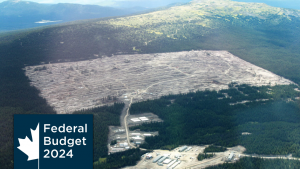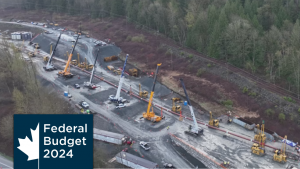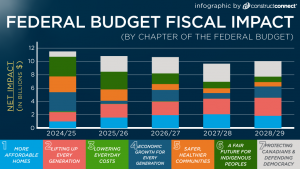Disappointed. It’s the word many in the construction and oil industries are using to sum up their feelings upon hearing TransCanada’s Energy East Pipeline will not proceed.
"I think it is unfortunate for the country that we are not going forward with a project that would be great for our national interests," said Mark Cooper, president of the Saskatchewan Construction Association. "I understand it is a business decision and I just wish that it had been a different decision."
On Oct. 5, the Calgary-based company said it would no longer be proceeding with its proposed Energy East Pipeline and Eastern Mainline projects, with CEO Russ Girling citing "changed circumstances" for the decision.
Energy East was proposed to be a 4,500-kilometre pipeline that would have transported approximately 1.1 million barrels of crude oil per day from Alberta and Saskatchewan to the refineries of Eastern Canada and a marine terminal in New Brunswick.
Cooper explained this pipeline project would have helped the nation refine its own oil instead of relying on other nations.
"We as a country need to get better at supporting these types of projects," he said.
Shantel Lipp, president of the Saskatchewan Heavy Construction Association, also expressed disappointment.
Patrick Dillon
Provincial Building and Construction Trades Council of Ontario
"It would have benefited Saskatchewan’s economy long-term, and shorter term would have created a great opportunity for the heavy civil sector," she said. "Many of our dirt contractors, trucking firms, suppliers, would have benefited from working as subcontractors on the project. It’s jobs lost for our sector. Pipelines are an important part of Saskatchewan’s infrastructure network and we believe are the safest, most efficient way to transport oil from coast to coast."
Ken Gibson, executive director of the Alberta Construction Association, noted any time there is a reduction in the marketplace there is a negative impact.
In Ontario, Patrick Dillon, business manager for the Provincial Building and Construction Trades Council of Ontario, stated: "Construction workers are deeply upset. We have worked with TransCanada laying the groundwork to provide enough trained and qualified workers to ensure that there would be no delays due to staffing.
"Energy East represented a lost opportunity to strengthen the country much as the creation of the Canadian Pacific Railway did nearly 150 years ago," Dillon added. "It is a shame that a cumbersome regulatory environment has caused a $15 billion investment to go south."
The Canadian Energy Pipeline Association (CEPA) issued a statement saying the cancellation of the pipeline will have a major impact on the country.
"The loss of this major project means the loss of thousands of jobs and billions of dollars for Canada, and will significantly impact our country’s ability to access markets for our oil and gas," reads the statement.
"TransCanada’s announcement follows the National Energy Board Energy East Panel’s decision to consider upstream and downstream greenhouse gas (GHG) emissions for the projects. This is evidence of how a lack of clarity and an unclear decision-making process regarding pipeline projects in Canada are challenging the energy sector’s ability to be competitive in the world market.
"Energy East would have delivered Canadian oil to Eastern Canadian markets, displacing approximately 400,000 barrels per day of foreign imports and opening up access to new markets for Canadian oil in world markets."
The Progressive Contractors Association of Canada (PCA) lamented the loss of jobs and revenue the project would have brought.
"This is yet another example of Canada’s failure to approve major infrastructure projects even though the benefits to Canadians, communities, the economy and our skilled workforce are undeniable," said Paul de Jong, PCA president, in a press release. "Canadians have just lost out on thousands of jobs from coast to coast, billions in GDP and tax revenues, and there’s no good reason for it."
He called the pipeline an example of a milestone project that benefited all Canadians.
"Now it’s symbolic of a system that’s breaking down our national resolve to build those major infrastructure projects that Canada’s economy, prosperity and competitiveness depend on," he said.
Premiers across Canada express disappointment
OTTAWA — Premiers across the country are also reacting to news of the Energy East cancellation, with most stating it’s a huge blow to the country.
Alberta Premier Rachel Notley delivered a statement to media noting while the government understands it was driven by a broad range of factors, it is an unfortunate outcome for Canadians.
"Our government has supported Energy East since the project was proposed," she said, adding the National Energy Board needs to send a clear message on what the future of project reviews looks like in Canada as investors need confidence. "This decision highlights the importance of diversifying market access and the subsequent national priority that must be placed on the Trans Mountain expansion project."
Saskatchewan Premier Brad Wall was not as kind, calling the cancellation not a good day for Canada or the federation and a very bad day for the West.
"TransCanada made the decision to cancel Energy East – but make no mistake, the reasons for it fall at the feet of Prime Minister Justin Trudeau and the federal government," said Wall in a statement. "They have been, at best, ambivalent about the project and then moved the goalposts at the last moment by asking the regulator to consider the impact of upstream greenhouse gas emissions."
Wall added TransCanada committed more than a billion dollars to the project and made 700 changes to its plans in response to concerns.
"Make no mistake, other companies’ decisions to invest in Canada will be informed by this debacle," said Wall, also criticizing that Western provinces send $2.5 billion in equalization payments to help support Quebec despite the fact that low energy prices have resulted in job losses and lower revenues for the last four years.
"Something needs to change," Wall said. "For the West to continue on like this in our federal system is the equivalent of having Stockholm Syndrome."
New Brunswick Premier Brian Gallant said in a statement to constituents that TransCanada’s decision is "not good news for those who wanted to see the Energy East pipeline built – and your provincial government falls firmly in that camp. Like many New Brunswickers, we are disappointed. The project would have created jobs in New Brunswick and helped the Canadian economy."
Federal Energy Minister Jim Carr told the media TransCanada’s decision was motivated by business considerations influenced by the state of commodity prices. He also noted the government already approved two other projects, the Trans Mountain and Line 3 expansions.
— With files from the Canadian Press











Recent Comments
comments for this post are closed